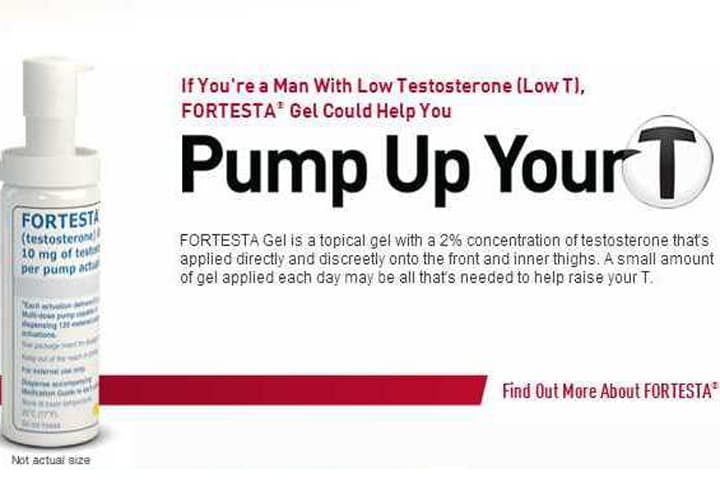Advertisement
Selling Testosterone
ResumeTestosterone ads for men are all over TV. Now come the warnings of health dangers. We’ll investigate.

Turn on television for the evening news, and it can seem like all Viagra and Cialis ads all the time. But right in there for a while now, almost as wall-to-wall, are the ads telling men to check their testosterone. Feeling sluggish, they ask? Maybe it’s “low T”. Ask your doctor, and you may soon be rolling testosterone into your armpit, getting it off a patch, an injection. And revving up again for life. A miracle! Last week, a new study came out finding substantial risks. Heart attack risk. This hour On Point: men, aging, “low T” talk, risk, and the charge of overselling testosterone.
-- Tom Ashbrook
Guests
Melinda Beck, Health Journal columnist for The Wall Street Journal. (@MelindaBeckWSJ)
Lisa M. Schwartz, professor of medicine and community and family medicine at the Dartmouth Institute at Dartmouth College.
Brad Anawalt, professor and chief of medicine at the University of Washington Medical Center.
Michael Kimmel, distinguished professor of sociology at SUNY at Stony Brook. Author of "Guyland: The Perilous World Where Boys Become Men," "The Politics of Manhood," "The Gendered Society," "Misframing Men," "Manhood in America" and "The Guy's Guide to Feminism."
From Tom's Reading List
New York Times: Weighing Testosterone’s Benefits and Risks -- "Officials at the Food and Drug Administration said on Friday that they were reassessing the safety of testosterone products in light of the recent studies, and will investigate rates of stroke, heart attack and death in men using the drugs."
Live Science: Low T: Real Illness or Pharma Windfall? — "Because low T can be treated with prescription medication, it has become the health problemdu jour for aggressive pharmaceutical marketing: The airwaves are now flooded with ads showing doughy, middle-age men turning into vigorous athletes and confident lovers."
The Dartmouth Institute: 'Low T': How To Sell Disease — "By lowering the bar, pharmaceutical companies target people in the 'big grey zone' between being clearly well or clearly sick. 'There are a lot of American men. Some are grumpy. Some are tired. Some may not be interested in sex at the moment. And all of them are aging,' say Schwartz and Woloshin. 'This is the intended target of the campaign.'"
This program aired on February 6, 2014.